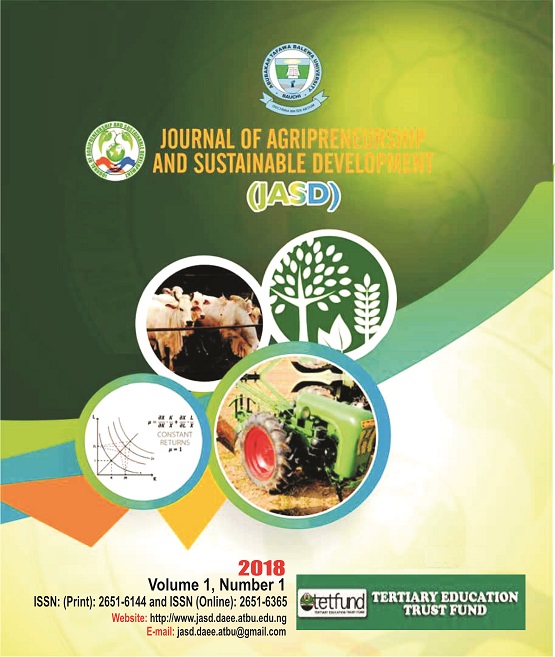ECONOMIC AND SOCIAL LINKAGES BETWEEN MALARIA ILLNESS AND CROP PRODUCTION IN YOBE STATE, NIGERIA
DOI:
https://doi.org/10.59331/jasd.v1i1.34Keywords:
Crop, Development, Household, Illness, Malaria, Production, PropensityAbstract
The purpose of this article is to stimulate discussion about the links between malaria pandemic and crop production, and to broaden our understanding of the effect of malaria in terms of its economic burden on households and national economic development of endemic economies. It begins with a theoretical framework, emphasizing economic development imperative of malaria, and the implication for agricultural development. Using propensity score matching, the likelihood of malaria infection was evaluated in relation to key socioeconomic variables among infected and uninfected households in agricultural communities of Yobe State. Similarly, the linear regression provides empirical evidence to suggest that the instrumented malaria indices significantly reduce crop production among malaria infected households. The economic loss approach further stresses the economic imperative of the opportunity cost of labor among malaria infected households. The empirical results suggest targeting farmers with malaria-specific control and prevention programs in the State.
Downloads

Downloads
Published
How to Cite
Issue
Section
License
Copyright (c) 2022 Journal of Agripreneurship and Sustainable Development

This work is licensed under a Creative Commons Attribution 4.0 International License.






